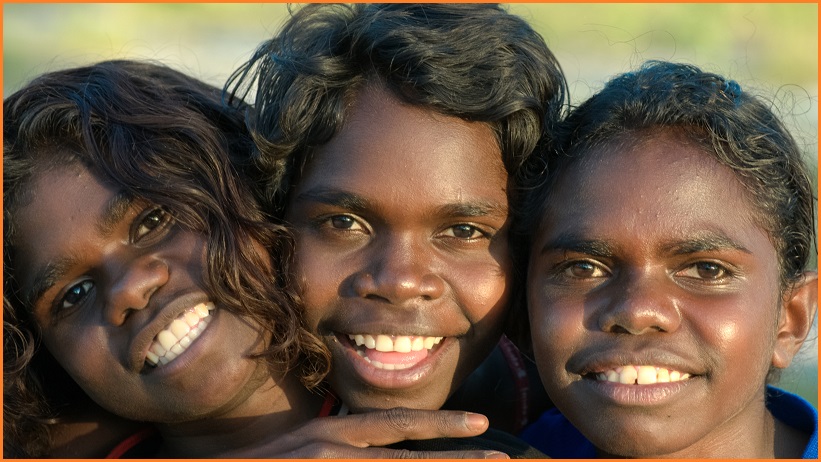Indigenous representation in cyber security and STEM-related industries remains “woeful”, and short-lived pilot programs are failing to build the trust needed to gain any real traction, a social policy analyst has warned, while noting that technical areas are missing out on a potentially invaluable pipeline of talent.
Many indigenous youths grow up speaking “eight or nine” languages and develop problem-solving skills in a range of ways, Australian Strategic Policy Institute (ASPI) indigenous engagement specialist Dion Devow told attendees at AISA’s recent CyberCon 2021 conference.
Yet existing mindsets around training mean that their representation in technical industries like cyber security is “pretty woeful,” Devow said, citing 2016 ABS statistics showing that the number of Indigenous-identifying ICT specialists was numbered in the hundreds at best.
Those figures showed just 231 Aboriginal men and 84 women working as ICT support technicians, with 300 ‘management and organisation analysts’, just over 60 ‘computer network professionals’ and only 38 telecommunications technical specialists – all men.
Just 127 Indigenous men and almost no women work as software and applications programmers, while 128 Aboriginal Australians and almost no Torres Strait Islanders were working as ICT security specialists or database and systems administrators.
The near absence of First Nations people in Australia’s cyber and STEM-related industries had complicated efforts to increase their participation in industries that are crying out for ways to fill their yawning skills gaps, launching pilot programs to engage groups ranging from ex-Defence personnel to vocational students and those on the autism spectrum.
“We’ve been given a hard task if we’re trying to motivate, extend and increase participation across the board,” Devow said. “It’s difficult, if there’s an absence of people in the sector, to know where to even start.... the number of qualified people who have computer science degrees is no one.”
As part of ASPI’s IndigiCyber, Defence & Space Program, Devow has been exploring ways to “foreground the unique skills and perspectives of First Nations Australians in discussions on issues that affect them and in the formulation of solutions.”
One initiative, which saw ASPI work with Canberra’s Questacon to engage around 30 Aboriginal children and family members in a culturally-tailored IndigiCyber Camp for Kids, demonstrated that cyber and STEM careers can resonate well if presented in the right way.
“After the workshop,” Devow said, program organiser Heidi Winter told him “’of all the workshops I’ve done across the country over the last 5 to 6 years, these kids picked up the concepts within the curriculum of this cyber security, the quickest that I’ve ever seen.’”
Helping cyber overcome the trust deficit
Such positive results are a reflection of a culture that has prioritised problem-solving to ensure its long-term survival, Devow said, noting that the experience “really solidified the fact that we are smart, and that we can do this – and that we’re not poor when it comes to language and learning and literacy.”
“We need to harness that – so we need to do things a little differently.”
Yet ongoing issues of relevance and trust, compounded with a prevailing attitude that pushes Indigenous children towards vocational school rather than information industries, means that any productive solution needs to be carefully “indigenised” and supported with long-term funding.
“One of the things that I’ve learned around working with Aboriginal people in communities for 30 years,” Devow said, “is that unless it’s really relevant and useful, and really is connected to our culture, country, and language – and to our people in our kinship systems – there’s really not much interest.”
Even where programs are designed with culturally appropriate and engaging content, he added, past experience with scattershot initiatives had left many in First Nations communities sceptical about new initiatives.
A recent fact-finding tour of Townsville and Palm Island communities highlighted the extent of this challenge in communities “where trust in institutions has totally broken down”.
Industry bodies needed to take a long-term approach to engaging with those communities, where many parents are reluctant to send their children away for education and many programs were designed with funding tied to unrealistic KPIs.
“One person I spoke with said that people come to the island every two weeks with a program that’s going to transform things, and then the timeline that is presented doesn’t measure up to what is actually needed – long-term engagement,” Devow explained.
“Sometimes low uptake is seen as a failure for these programs,” he said. “Whether it’s an education degree or even finishing Year 12, it might be just one person [who completes the program].”
“Looking through a non-Indigenous lens, that’s really bad – but they might be the first person in their entire family that has ever attained that level of education.”
Devow’s experiences reflect a common theme that, Baidam Solutions CEO and co-founder Phillip Jenkinson told a recent Cyber Week 2020 panel session, reflects the “fairly significant barriers to inclusion” that the cyber industry has created by requiring particular certifications and skills.
“We have to overcome that barrier,” Jenkinson said, reflecting on his experience mentoring a First Nations woman who had graduated with a Bachelor in Computer Science and “was desperate to be taken seriously”.
Baidam decided to “pay it forward” and sponsored her through a SANS Institute incident-response forensics course – and the two are still in contact.
“She’s an absolute pocket rocket and I guarantee you that she will be the first First Nations CISO of any federal government agency in Canberra,” Jenkinson said. “It just takes one person to make a leap of faith and give someone a chance – because when you do that, the effect will be life changing.”










